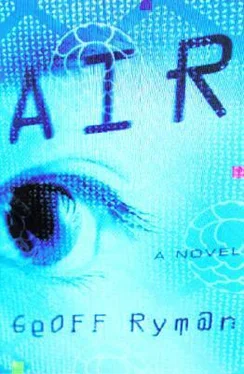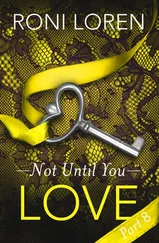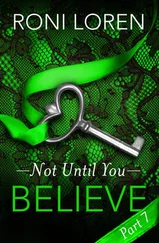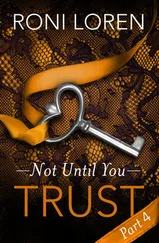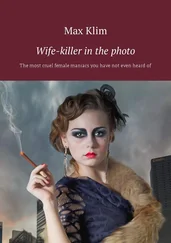'The world is so big,' said Ling. A man in old, stiff clothes and a peasant's cap dropped a bag of tools.
'These are all houses for people,' said Mae.
'Where does the world stop?' asked Ling.
The man began to follow.
'It never stops,' said Mae.
'Your… Your dog is talking,' said the man.
Ling thought he was being praised and turned back to sniff the man. He was a hard Karz villager with a face that looked as though someone had smashed it with a plank of wood, stubble-black chin merging with huge moustache. He backed away in alarm.
'They do it in the Air,' said Mae, explaining, wanting him to know it was nothing extraordinary. 'It is like a radio in his head and in his throat.'
The man began to shake his head over and over. He wiped away the world with his hand. 'I fix cars,' he said. He turned back. 'The dog understands?'
'I want to,' said Ling.
The man gazed into the dog's soft black eyes, as if he could fall into them and disappear. 'Tuh,' was all he said, the sound of his world changing, suddenly, for real. He picked up his bag of tools. Ling sniffed them experimentally. Dazed, the man scratched his head and turned away.
The boys from the bookshop stared.
Mae gave them a little wave and walked on.
The streets began to climb steeply.
'How far to the steak?' Ling asked.
'Oh, perfect boy, lovely fellow,' said Mae. 'It is a long way but we will talk.'
'What is the world like to you?' Ling asked her.
'Right now, I am drugged. So everything is very strange. Like it is for you.'
A woman came up to her and wordlessly pressed into Mae's hands a pair of plastic sandals. The plastic was clear and full of silver}' flakes that reflected and caught the sunlight. The woman's eyes were ringed with mascara, full of outrage and pity. She wore a purple jacket and Western-woman working boots.
'May I suggest a light mauve scarf with a such a strongly coloured jacket?' said Mae.
Mae, she told herself, your mind. Your mind is not working properly yet.
The woman's face did not change, but she walked away quickly.
Mae walked on in her silver shoes to where the road turned off, towards the sign for home, and she looked back over the city with its trees and light. Shadows were slightly longer, sunlight and shadow were balanced in the foul blue air. It looked cooler, golden, mauve. Rising up out of the light was the Great Saudi mosque, made of frosted crystal, dancing quotes from the Koran catching the sunlight to be illuminated from within.
A long bronze-reflecting limousine coasted to a halt beside her. A window slid open like the protective lens of a lizard's eye, and Mr Tunch leaned out.
Mae felt terror, only the terror could not fight its way to the surface of her face, her limbs, or down into the pit of her stomach.
I'm caught, she thought blandly.
'Hello, Mae,' said Wisdom Bronze. They both waited. He pushed open the door on the other side of the car. 'Let me drive you home.'
Mae could not move. Part of her wanted to cry. Her eyes tried to cry, but the drugs prevented it.
Ling looked back and forth, back and forth.
'Mae?' he pleaded for direction.
'Get in,' she said, in a voice so soft only a dog could hear.
'He said we're going home,' said the dog. He climbed into the backseat, next to Mae's old best dress.
Mr Tunch was doing his own driving. 'I meant what I said, Mae.' His eyes were blanked out by glasses. 'There's something I want to explain.'
Something seemed to pop in Mae's head again. Something told her the walking had been good, it had made the drugs worse, but they'd be over with sooner. The thought meant she had not yet got into the car.
'Don't be silly, Mae, you are not important enough to me to hurt you.'
She got in the front seat.
'Me,' whimpered Ling, and, claws clattering, climbed onto Mae's lap. His feet dug in for something to grab.
'Ouch,' said Mae.
'Hold me,' said Ling, and she realized he was afraid. He ached for the window, where there were smells, the world he truly believed in.
Mae hoisted him around so that he sat on her lap comfortably.
'All in?' asked Tunch, as if they were a family on an outing.
The car went in the right direction.
'What will happen to you back home?' Tunch asked.
Mae considered. 'I will be an outcast. It will make helping the village very difficult, for they will not listen to me.' Pop, went her head, clearing again. She began to be aware of the light breeze of fear blowing through her.
'You won't take the drugs?' he asked.
Mae shook her head.
He had to change gear, glancing in the mirror at the future behind them. 'That is probably wise. It will leave you with a clearer head. But when you and Mrs Tung feel the same thing, she will emerge.'
'I can beat her off,' said Mae. 'Except when people interfere.'
'Sorry,' said Tunch.
Mae could have said a lot of things. Do you say 'Sorry' to the wives of men you kill? Or do you just threaten? How do you keep all your separate selves apart? I hope you manage to keep the small-time assassin separate from the man who wants to rule.
Pop.
Tunch went on: 'One of the side effects as the drug wears off will be a period of, uh, greater sensitivity. Someone needs to be with you.'
Pop. 'You know my address in Air. Will you be recording that, too?' Pop. 'And sell the information to the foreigners? Or have they already paid for anything you might find out?'
'It depends,' murmured Tunch, 'on the information.'
'Ling,' said Mae, 'he may try to kill you. Too many people have seen you, boy. And you are not supposed to exist. Do you understand me, boy?'
'Yes,' said the unreadable mechanical voice. Mae buried her face against his furry cheek, and the bare, shaved forehead.
'I'm sorry. I didn't understand. I should have left you in the compound. Watch him, Ling. He has masters, too, like you do. He has to be loyal to them or he does not eat. You and he are the same.
'I understand,' said Ling.
'Good boy, Ling,' said Tunch. 'Just be a good boy.'
'I always am,' said Ling.
Mae said, 'You will turn Karzistan into the garbage pail of the world.'
'Karzistan has to make a living,' he said.
The car drove on, grasses blurring by. What was close was lost in speed.
'You do not understand me, Mae,' said Tunch. I am slightly relying on the drug to help you accept what I will say. What I am about to say, is said using very carefully chosen words, used in a very precise way.'
'I'm ready,' said Mae.
'I am a hero,' said Tunch.
Ling's nose was pushed out of the window. 'This world smells different,' he said.
Mae was unimpressed. 'I am waiting for the precise meaning of the word,' said Mae.
'A hero mediates,' said Tunch. 'He brings together good and evil. He uses the tools of evil, may even be evil, to do something constructive. People need heroes. They yearn for them. That is because people who are not heroes think that heroes are good. And evil is done by people who think they are good. Good people do harm by being gentle and not stopping things. Good people fight wars out of love. They need heroes to break that cycle. To defend them, to build things.'
Black shadows danced inside Mae's eyes, and Mrs Tung tried to gather her thoughts.
'It is terrible, but it is the only way forward. Heroes are not like in stories, where they wear a mask of nobility. All heroes do evil, terrible things. Robin Hood was a thief and murderer. John Kennedy ordered invasions and wars. So did Lawrence, who fought like a wolf for the Arabs. Ataturk destroyed the mosques and killed the clergy. Wonderful, terrible people are both good and evil.'
The drug made it difficult for anyone to gather their thoughts. 'You are trying to tell me why you will never do me harm,' she said, 'now that you have learned from the harm you have already done me.'
Читать дальше
